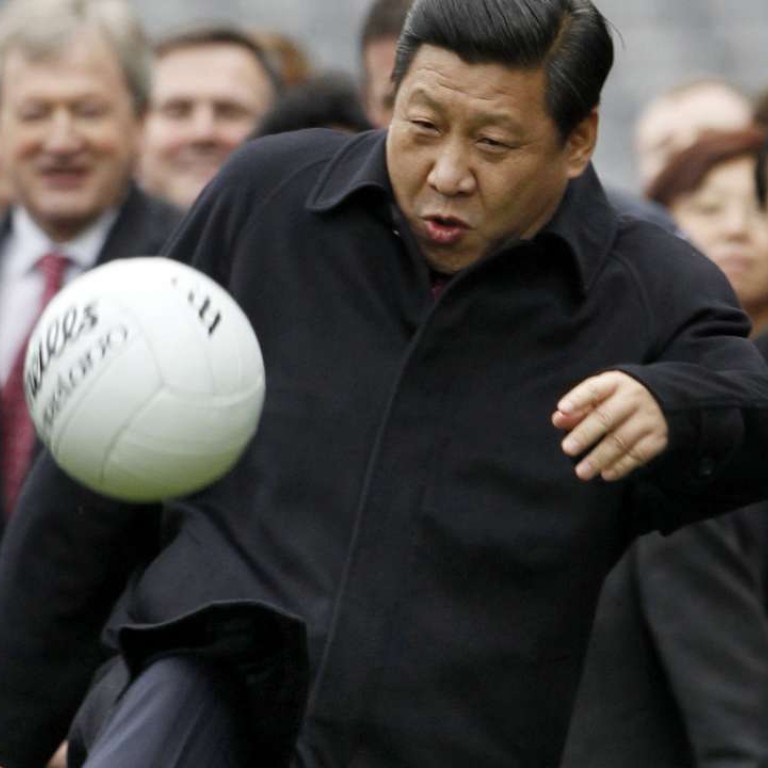
China football revolution to spark world transfer fee record in 2017
From a parade of players heading East, to a web of acquisitions in the West, 2016 was a big year for China’s grand football strategy. And 2017 is set to be even bigger
After more than 20 years spent researching and writing about football, there are several large stacks of magazines from across the world piled up in the corner of my office. Among them is a 2003 edition of Football Business International (FBI), a now-defunct British trade publication. This particular edition is notable for its front cover, which proclaims “the Chinese are coming”.
More than a decade on and some people are still making the same claim, but it’s been a long wait for the Middle Kingdom to get its act together.
In some ways, the failure of China to become a prominent football force has reflected their abysmal World Cup performance in 2002 (played three, lost three).
China’s noughties football revolution never actually arrived, in spite of a second attempt several years ago notably marked by Didier Drogba and Nicholas Anelka’s arrival at Shanghai Shenhua in 2012. Though China hardly stormed the gates of world football even at this point, the seeds of something more profound were, however, already being sown.
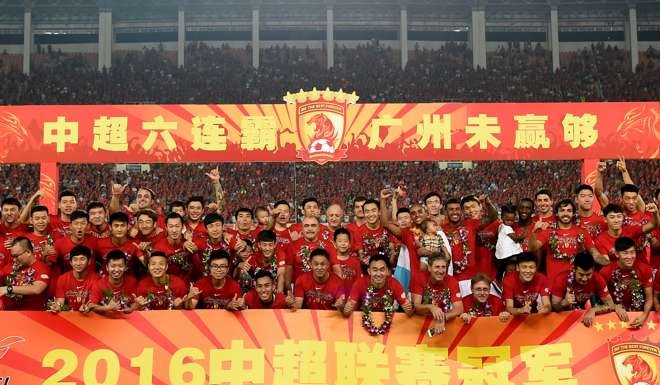
With these seeds having now germinated, there is a sense this year that we are on the cusp of a more meaningful Chinese football revolution.
Guangzhou won their sixth consecutive Chinese Super League (CSL) title; Wang continued on his voracious quest to acquire sport and entertainment properties; and Xi, now firmly ensconced as president, has firmly pushed China towards becoming a football superpower.
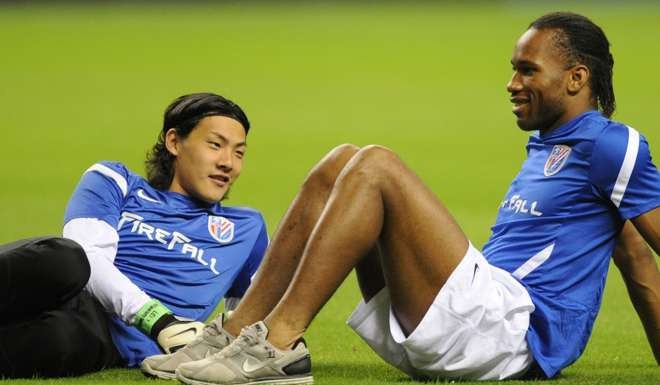
In 2015, China Media Capital acquired 13 per cent of Manchester City, while Wanda took a 20 per cent stake in Atletico Madrid. Yet this was nothing compared to what has happened this year, which has led me to revisit that FBI headline from 13 years ago.
Chelsea fans may struggle to understand how a sometimes wayward Brazilian midfielder could symbolise a shift in football’s global power base, yet at the start of this year, Ramires Santos do Nascimento became a geopolitical poster boy for the revolution that Chinese football has long been threatening.
The player could have gone anywhere in the western world, but he didn’t – he moved to the CSL (with Jiangsu Suning, for £25 million), leaving behind the English Premier League which is considered by many to be the biggest league in the world.
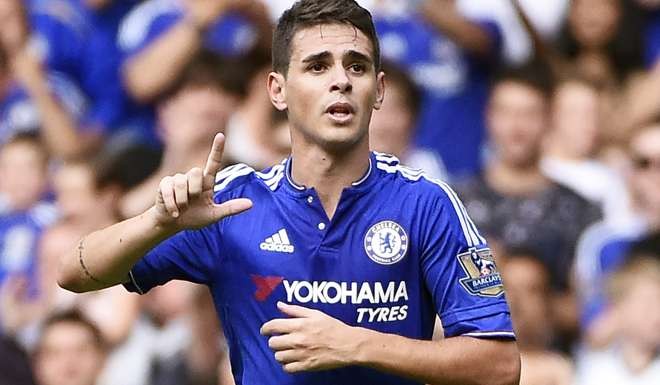
Since then, the likes of Ezequiel Lavezzi, Hulk, and Graziano Pelle have all followed suit. And Chelsea’s Oscar – a genuine world-class talent in the prime of his career – will also head east in a £60 million deal to Shanghai SIPG.
This week, Argentina’s former Manchester United and Manchester City striker Carlos Tevez signed for Shanghai Shenhua in a deal worth anything from US$40 million (and a US$11 million transfer fee to Boca Juniors) to US$84 million depending on who you would believe.
And to top it all, Cristiano Ronaldo’s agent said the World Player of the Year had turned down a 300 million euro offer to leave Real Madrid for an unnamed Chinese club.
Given China’s appetite for breaking world records, and with the CSL transfer window open, it is possible that we may see a Chinese club break the world transfer fee record next year. That belongs to Manchester United who paid £89 million for Juventus’ Paul Pogba this year.
As foreign players have headed East, so too has some of the world’s top managerial talent.
For example, one-time Jose Mourinho protégé and former Chelsea manager Andre Villas Boas is now in charge at Shanghai SIPG.
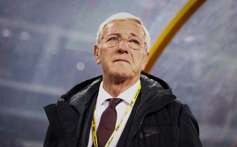
We should also anticipate further European club purchases; the 2015 Manchester City and Atletico Madrid stake acquisitions were simply entrées to a much bigger feast in 2016.
The likes of Inter Milan, Nice, and Granada all became Chinese-owned clubs, but it was in England where the most frenetic activity took place.
Aston Villa, West Bromwich Albion and Wolverhampton Wanderers were a portent of things to come, as post-Brexit British and Chinese investors, ramped up on football fervour, began aligning their interests.
Nowhere would this seem to be more apparent than at Wolves: located in a large conurbation in need of significant investment, close to Britain’s proposed HS2 rail link, Wolves club buyers Fosun have just secured a US$7 billion contract to build a similar high-speed rail link in China.
With the likes of Liverpool and Southampton also seemingly on China’s acquisition radar, 2017 is likely to add further to a mix of football ambition, diplomacy, resource acquisition and geopolitics. Joining the dots in this way is something that both Wanda and Suning are proving to be hugely adept at.
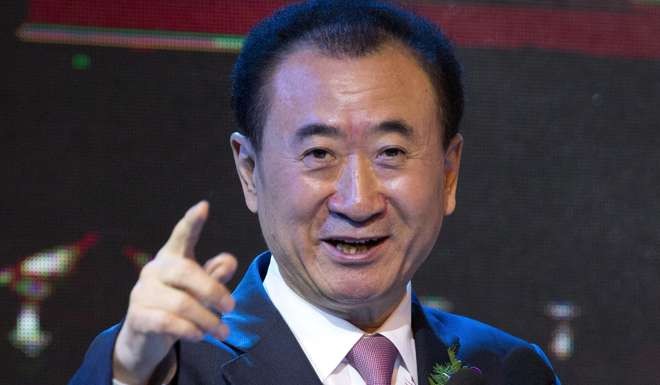
The creation of such integrated supply chains will continue to dominate next year, with China utilising football as a means of furthering its broader interests.
For instance, stadiums for the 2017 African Cup of Nations in Gabon have already been constructed with China’s help.
In turn, Xi has recently visited the country, which possesses iron reserves of more than one billion tonnes. Extracting this may, one suspects, be an outcome of China’s ongoing policy of stadium diplomacy.
Which leaves one intangible variable in China’s great football equation: the country’s national team.
This year saw the release of its Football Vision, which has targeted World Cup victory by 2050. Although quite modest, given China’s abysmal recent international record, lifting football’s most important trophy still seems some considerable distance away.
Lippi faces a challenging new year, but so too does his team – especially if it is to climb from its lowly ranking of 82 in the world. .
This will be worth watching, especially as there have already been adverse repercussions associated with the Chinese national team’s failings. Roll-on 2017!
This article is published in partnership with Policy Forum.net (www.policyforum.net) – an academic blog based at the ANU Crawford School of Public Policy.

